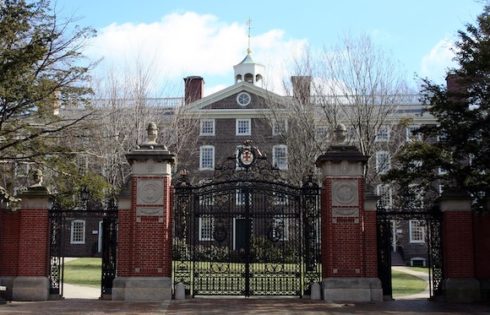A lengthy report in Inside Higher Ed highlights a big dispute among professors over whether their nonstop identity politics rhetoric is hurting their cause and helped catapult Donald Trump to the White House.
The heated debate was fueled by an op-ed titled “The End of Identity Liberalism,” written by Mark Lilla, a professor of humanities at Columbia University, in The New York Times. It read in part:
[T]he fixation on diversity in our schools and in the press has produced a generation of liberals and progressives narcissistically unaware of conditions outside their self-defined groups, and indifferent to the task of reaching out to Americans in every walk of life. At a very young age our children are being encouraged to talk about their individual identities, even before they have them. By the time they reach college many assume that diversity discourse exhausts political discourse, and have shockingly little to say about such perennial questions as class, war, the economy and the common good. In large part this is because of high school history curriculums, which anachronistically project the identity politics of today back onto the past, creating a distorted picture of the major forces and individuals that shaped our country. (The achievements of women’s rights movements, for instance, were real and important, but you cannot understand them if you do not first understand the founding fathers’ achievement in establishing a system of government based on the guarantee of rights.)
When young people arrive at college they are encouraged to keep this focus on themselves by student groups, faculty members and also administrators whose full-time job is to deal with — and heighten the significance of — “diversity issues.” Fox News and other conservative media outlets make great sport of mocking the “campus craziness” that surrounds such issues, and more often than not they are right to. Which only plays into the hands of populist demagogues who want to delegitimize learning in the eyes of those who have never set foot on a campus. How to explain to the average voter the supposed moral urgency of giving college students the right to choose the designated gender pronouns to be used when addressing them? How not to laugh along with those voters at the story of a University of Michigan prankster who wrote in “His Majesty”?
Some professors loved the piece, others hated it. At least one scholar called it “white supremacist in its framing,” Inside Higher Ed reports, adding:
Lilla’s piece met with at least as much criticism as it did praise — so much so that the Times’s David Leonhardt devoted to it a column summing up various critiques as follows:
“The core criticism was that Lilla was wrong to suggest the political left deserves blame for initiating the focus on racial (and other) groups.”
In other words, if identity politics are so bad, why did Trump prevail when he was practicing his own not-so-subtle brand? And to assert that white identity politics ever went away only to come back with a vengeance this election cycle is to engage in a chicken-or-egg argument: Is the so-called “whitelash” a reaction to the left’s identity politics, or has it been there all along, necessitating identity liberalism? Interestingly, Lilla himself wrote that “Liberals should bear in mind that the first identity movement in American politics was the Ku Klux Klan, which still exists.”
Leonhardt also said that while Lilla’s view “fits with the postelection conventional wisdom: that Democrats must do better appealing to the white working class to regain power,” Democrats “need to be careful about alienating their current constituencies — particularly since many of those constituencies are growing.”
Read the Inside Higher Ed article.
Like The College Fix on Facebook / Follow us on Twitter




Add to the Discussion